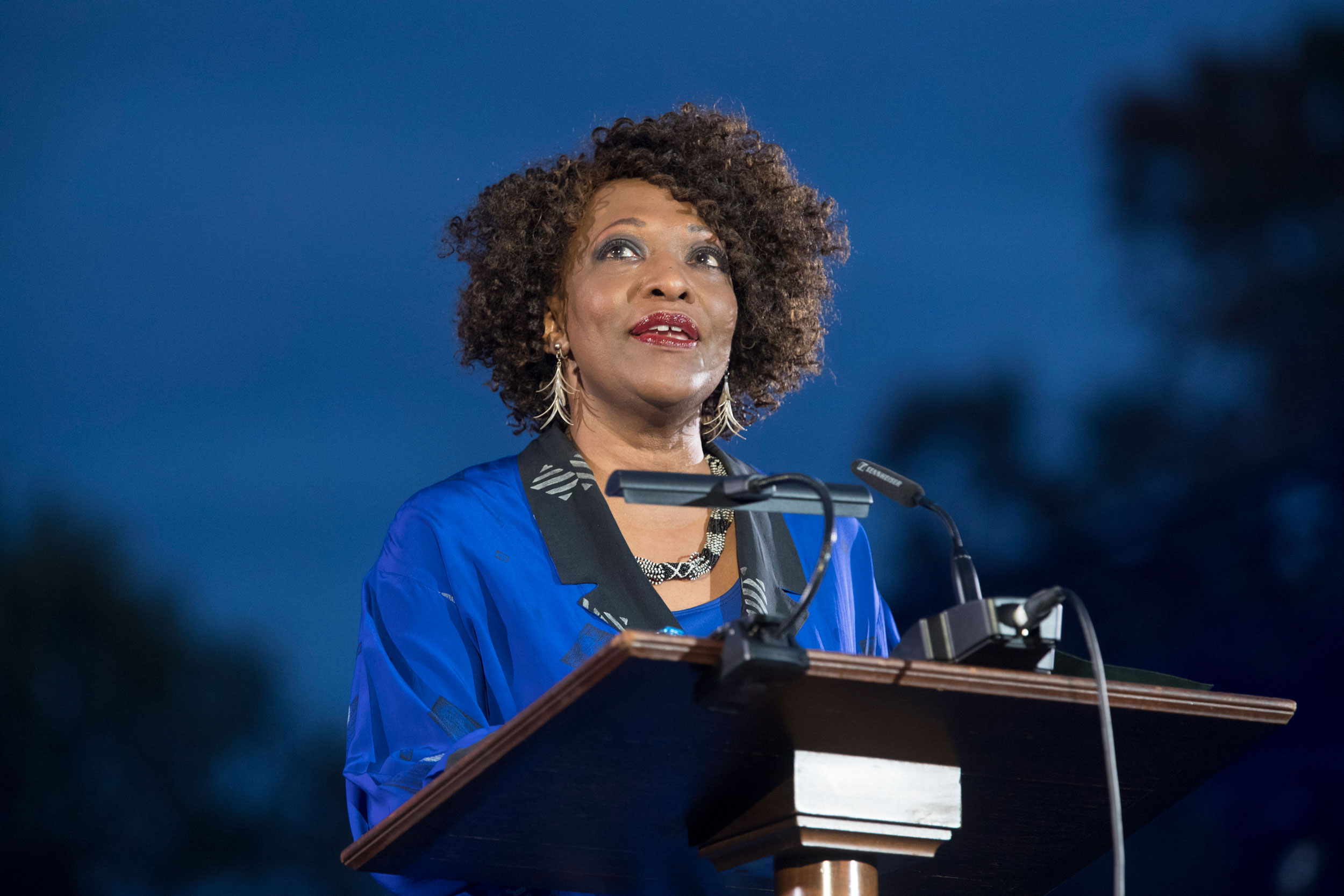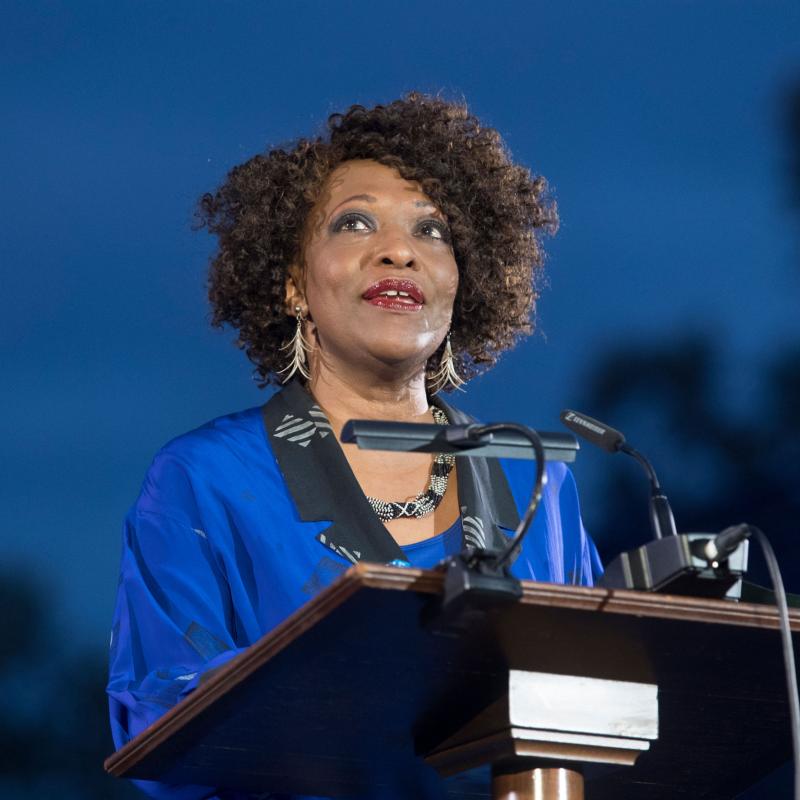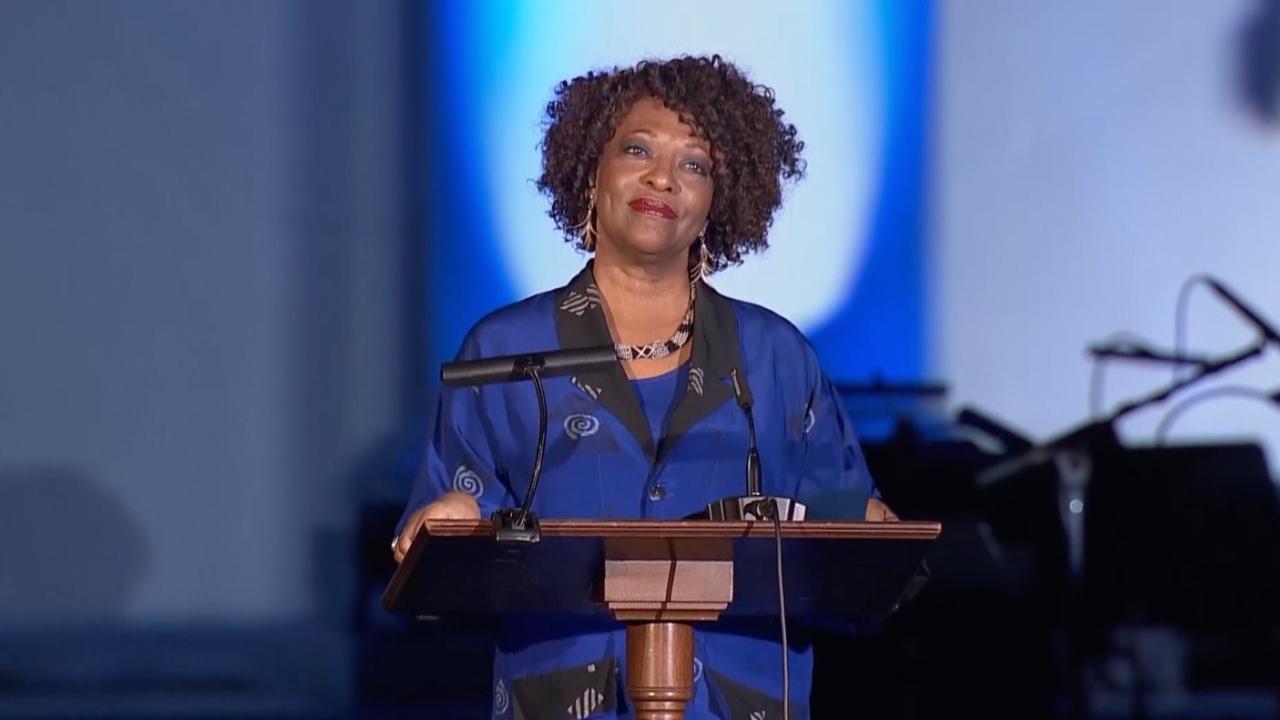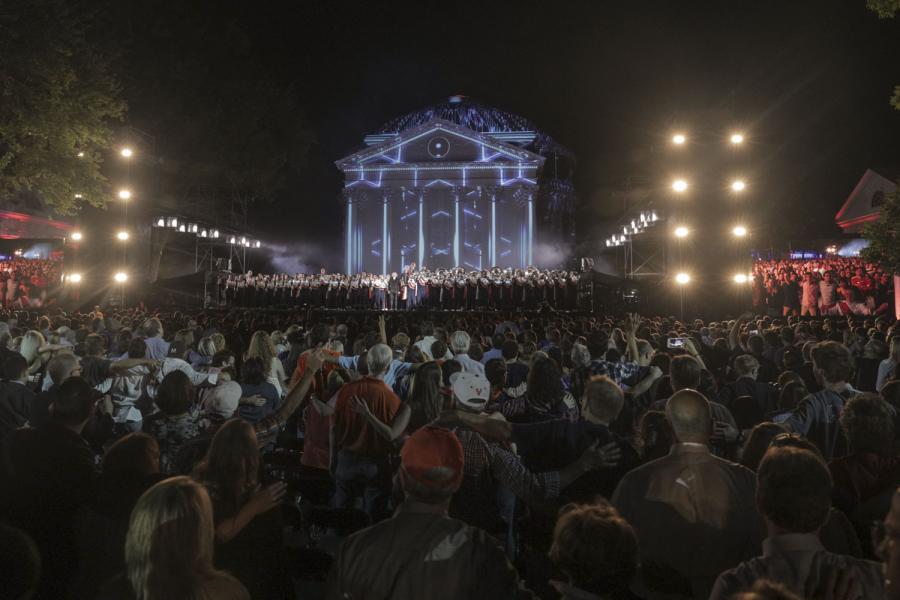This semester, along with teaching, Dove is working on a literary memoir and a cycle of songs that composer Richard Danielpour is setting to music. Eventually they will be performed at the Kennedy Center for the Performing Arts in Washington. “We’re working on it together. The poems are being written for this song cycle. That’s a different way of thinking about the space that a poem creates,” she said.
A new manuscript of poems is still in “a nascent stage where everything is in flux,” she said.
Dove joined the UVA faculty in 1989 and has been Commonwealth Professor of English since 1993. She won the Pulitzer Prize for Poetry in 1987 for her collection, “Thomas and Beulah,” based on her grandparents. She has won dozens of other awards, including both the National Humanities Medal and National Medal of the Arts. She is a member of PEN America, the American Philosophical Society, the American Academy of Arts and Sciences, the American Academy of Arts and Letters and the Fellowship of Southern Writers. Currently she serves as poetry editor of The New York Times Magazine.
“After all these years of writing poems, I’m still mystified about why something attracts me,” Dove said.
An excerpt from “Bellringer,” dedicated to Henry Martin (July 4, 1826-Oct. 5, 1915)
I am no longer a dreadful coincidence
nor debt crossed off in a dead man’s ledger;
I am not summoned, dismissed –
I am the clock’s keeper. I ring in their ears.
And every hour, down in that
shining, blistered republic,
someone will pause to whisper
Henry! – and for a moment
my name flies free.







